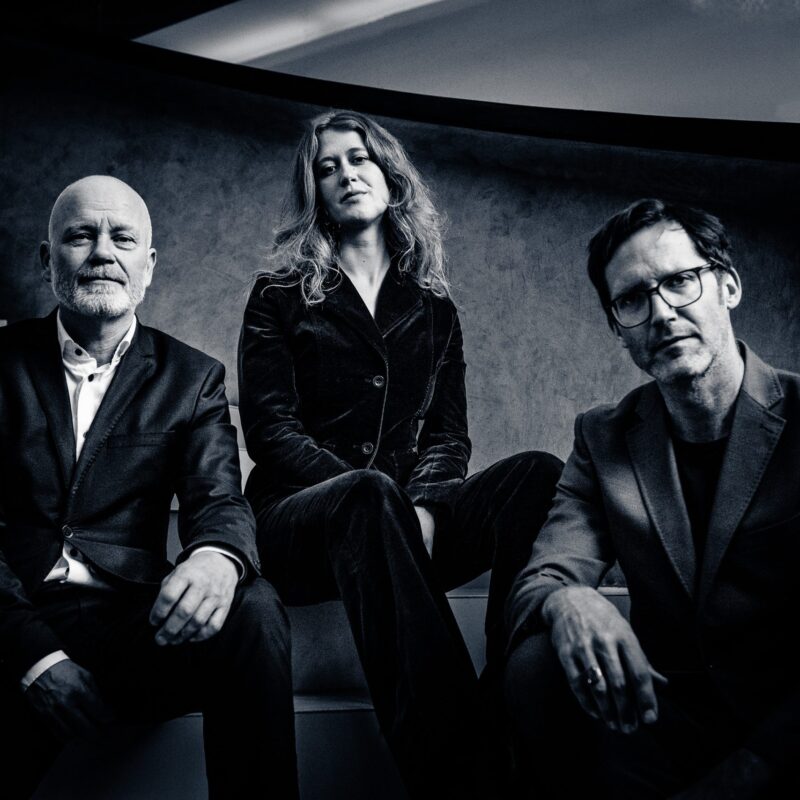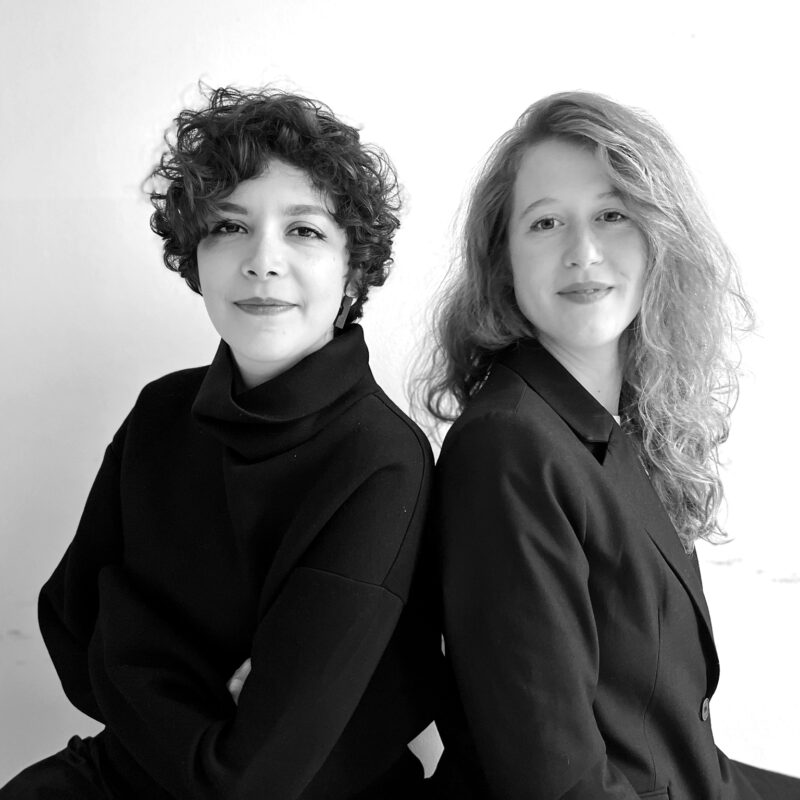Clara Haberkamp – p
Oliver Potratz – b
Jarle Vespestad – dr
Solo
Clara Haberkamp – p
Duo Azadi
Clara Haberkamp – p
Atena Eshtiaghi – vc
Leading a piano trio is one of the constants in Clara Haberkamp’s career. She founded her first trio in 2010. Jarle Vespestad joined in 2022 as the regular percussionist. PLATEAUX (JAZZart, the new label of TYXart, 2024) is the first recording with him.
Their two co-conspirators are very subtle, refined musicians and belong to a slightly older generation than themselves. Bassist Oliver Portratz is one of the most sought-after representatives of his instrument in Germany. Jarle Vespestad can look back on extensive experience, including several years with Farmers Market and in Tord Gustavsen’s trio. Each of them has played on over a hundred albums. Nevertheless, it is the enormously accomplished pianist who shows the directions that give the music its forms and her colleagues their rhythmic and harmonic challenges.
The most striking thing about PLATEAUX is the amazing range of styles and playing techniques that the trio has at its disposal. Clara Haberkamp says: “We play on the same foundation and are ready to take new directions at any moment. This requires a great willingness to take risks. I can sometimes just hand over responsibility and let go.”
The album title is inspired by a book whose authors described traditional power structures and hierarchies by all means and encouraged their dissolution: Milles Plateaux (1980) by the philosopher Gilles Deleuze and the psychoanalyst Félix Guattari. The world has moved on since then, and if you follow Haberkamp and her trio’s course-setting, there are better ways of inventing and communicating since then.
The music on PLATEAUX has it all, from intricate counterpoints(Collage), passionately intense lyricism(Enfold me like a poem), quietly reflective(On a Park Bench) or idealized dreamscapes(Fantasmes) to moments where the music returns to simple, soulful expressions that touch everyone(If You Could Read My Mind). And few singers/pianists like Shirley Horn have achieved the intensity of piano and voice together that Haberkamp gives to her hauntingly reharmonized Danny Boy – a welcome opportunity to return to singing for a single piece.
“I have changed,” says Clara Haberkamp. “My role models in music and in life today are women who combine strength and self-determination with sensitivity and empathy.” Such thoughts not only fit into her personal development and her contours in the European music scene, they also shape the way she plays and leads the trio: Natural, at one with herself and the piano and with her role as bandleader. This enables her to stand out from the crowd of piano trios.
Solo
Booking period:
ReleaseTour Solo-Album
February 07 to 15, 2026
Further dates available on request!

Clara Haberkamp – p
Clara Haberkamp shows another facet of her skills in a duo project with classical concert pianist Matej Dzido: Clavinova Classics
In early July 2025, Clara Haberkamp will record her new solo album on
– again on TyxART!
It will be released in February 2026.
We look forward to receiving booking inquiries for the spring!
“Clara Haberkamp creates her very own sound. Recognizable, her playing is both serious and light-hearted, thoughtful and free, profound and light. With Clara Haberkamp, we are honoring a musician who, with passion, meticulousness and a great desire to invent herself, has rightly conquered a prominent place in the German jazz scene,” reads the jury statement for the Westfalen Jazz Prize 2025, which Haberkamp was recently awarded at the Münster International Jazz Festival.
Turning weaknesses into strengths is considered a virtue. That’s a good thing. But Berlin pianist Clara Haberkamp is already a step ahead, because in a constant process of osmosis she has long been transforming strengths into further strengths. No, this is not a paradox. On a constant path of perfection, the sensitive tone poet is not concerned with perfection, but with reinventing herself at every stage of the journey without denying what she has achieved.
Over the last few years, Clara Haberkamp has acquired an extraordinarily distinctive signature as a composer. Expressiveness, depth of soul and the unique ability to translate productive doubt into sensual sound are part of her brand essence, which she approaches from a different perspective on each of her albums.
“five stars: Clara Haberkamp is a highly talented musician; she plays as if born to the manner”
(Colin Clarke Fanfare Magazine, Nov 2024)
“Rapidly rising German star pianist Clara Haberkamp has a daunting musical brain… but then, by stealth, Mehldau-ishly perhaps, she can melt the heart with a ballad like her own tune ‘Mein Herz ist unterwegs’, played with limpid clarity and unmistakable emotional depth.”
(The Arts Desk. Salzburg. October 2023)
“First of all, there is Haberkamp’s touch. Clearly contoured and without any gentle whispering, she sets her chords, which do not leave the terrain of romantic harmony until they merge into off-beat phrasings of modern jazz. But wherever the musical material of her playing comes from and however dynamically she sets her lines or chords, the grand piano always sounds as if the steel strings have been replaced by gut strings. This sound character underpins her entire playing, as if every note were impregnated, covered with a fine sheath that protects against all coarseness and any unqualified rumbling.”
(Wolfgang Sandner, FAZ)
Azadi means freedom, and so what these two talented musicians create in the flow of improvisation with enough song structure and somewhere in the waters of jazz and classical music can leave no one untouched. Genre boundaries are disregarded and it doesn’t matter where the musical material of their playing comes from: only possibilities count, and there are an infinite number of them. Outbursts, surprises and emotional exuberance are allowed and required and guarantee maximum authenticity, and everything is in flux.
Dates
Warning: Undefined array key "tickets_advancesale_internet" in /var/www/k16624-1/apps/agentwolke/wp-content/plugins/bernhards-plugin/data/tourdates-parser.php on line 76
Warning: Undefined array key "tickets_advancesale_internet" in /var/www/k16624-1/apps/agentwolke/wp-content/plugins/bernhards-plugin/data/tourdates-parser.php on line 76
Warning: Array to string conversion in /var/www/k16624-1/apps/agentwolke/wp-content/plugins/bernhards-plugin/bernhards-plugin.php on line 42




